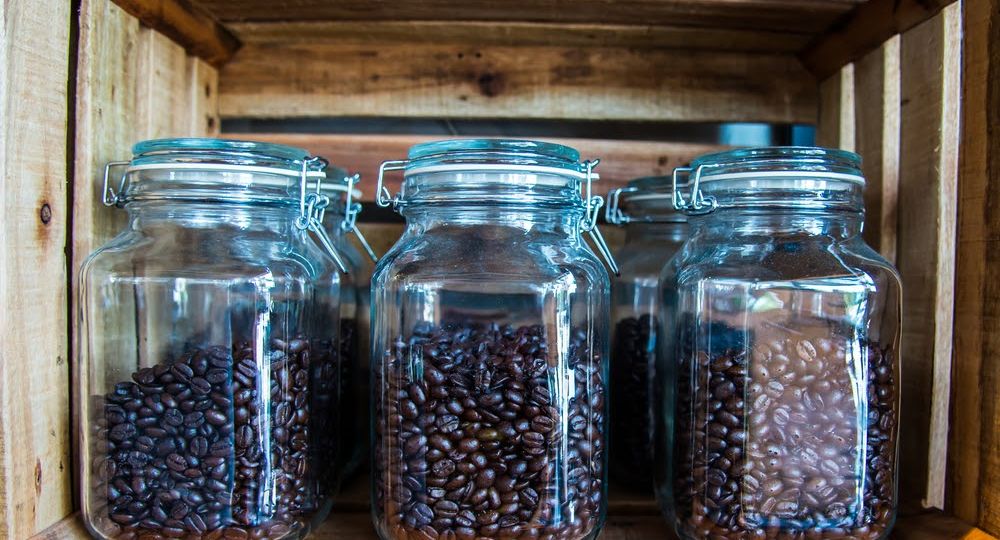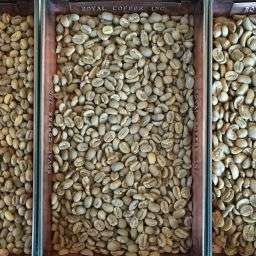
The quest for the perfect cup of coffee begins long before the brew process—it starts with how we store our beans. Proper storage is paramount to preserving the freshness, flavor, and aroma of coffee beans, ensuring that each cup is as delightful as intended.
This article delves into why proper storage is critical, the factors that compromise coffee bean quality, and the best containers to shield your coffee from harm.
Why Proper Storage Matters
Freshness and flavor are the hallmarks of a great cup of coffee, both of which hinge on how the beans are stored. Coffee beans are susceptible to deterioration when exposed to air, moisture, heat, and light, each factor playing a role in accelerating the loss of quality.
Air can cause oxidation, moisture can lead to mold, heat can hasten the degeneration of the beans’ complex compounds, and light can degrade the beans’ flavor. Thus, selecting an appropriate storage container is not just about convenience; it’s about preserving the essence of the coffee itself.
Types of Coffee Storage Containers
Airtight Canisters
Airtight canisters are the cornerstone of effective coffee storage, designed to keep out air and other detrimental elements. These containers often feature silicone or rubber seals to ensure an impenetrable closure, guarding against oxidation and moisture.
Specialty Coffee Storage Solutions with CO2 Valves
For those seeking advanced options, specialty coffee storage solutions come equipped with CO2 valves. These containers allow the natural gases from the coffee to escape without letting air in, further protecting the beans from oxidation.
Material Considerations
- Stainless Steel: Offers durability and protection against light and air. However, they can be prone to dents and are generally more costly.
- Ceramic: Provides excellent protection against light and can be aesthetically pleasing. They need careful handling to avoid cracks or chips.
- Glass: While beautiful, clear glass containers require storage away from light to prevent flavor degradation. Containers made from borosilicate glass or those tinted to block UV rays offer a compromise between aesthetics and function.
Pros and Cons
Each material and design comes with its advantages and drawbacks. Airtight canisters are versatile and widely available, but the quality of the seal is crucial. Specialty containers with CO2 valves offer enhanced preservation benefits for aficionados willing to invest.
Stainless steel and ceramic containers provide excellent light protection but at a higher cost and with more care required. Glass containers, although not inherently light-proof, can be suitable when stored correctly and often enhance the visual appeal of your coffee station.
What to Look for in a Coffee Storage Container
When selecting the ideal coffee storage container, several key features ensure the preservation of your coffee’s freshness and flavor.
- Airtight Seal: A container with an airtight seal is essential. It prevents air from entering and staling the coffee beans, preserving their natural oils and aroma.
- Opaque Material: Light can degrade the quality of coffee beans. Containers made from opaque materials or designed to block out light protect the beans from this potential harm.
- Size and Capacity: Consider your coffee consumption habits. The container should match the amount of coffee you consume within a given timeframe to minimize exposure to air.
- Additional Features: Some containers come equipped with innovative features like CO2 valves, which allow gases to escape without letting air in, or freshness tracking mechanisms to monitor the coffee’s shelf life.
Top Container Recommendations
Stainless Steel Canisters (e.g., Coffee Gator with CO2 Valve)
Pros:
- Durable and protective against light and air.
- CO2 valves allow gases to escape, preventing oxidation.
- Often features mechanisms to track freshness.
Cons:
- Can be more expensive than other materials.
- Susceptible to fingerprints and smudges.
Ceramic Containers (e.g., Airtight June Sky Porcelain Condiments Container)
Pros:
- Aesthetic appeal that fits various kitchen decors.
- Effective light protection with opaque materials.
Cons:
- Fragility; prone to cracking or chipping if dropped.
- Some may lack additional features like CO2 valves.
Glass Containers (e.g., Borosilicate Glass Jars with Silicone Seal)
Pros:
- Visual appeal, allowing for easy identification of contents.
- Borosilicate glass offers durability and some level of light protection.
Cons:
- Clear glass containers require storage out of direct light.
- Not all glass jars provide an airtight seal.
High-Tech Options (e.g., Miron Glass for UV Protection)
Pros:
- Superior protection from UV light, preserving coffee freshness longer.
- Stylish and unique appearance.
Cons:
- Higher price point compared to standard containers.
- Limited availability and options in design.
Each option presents a balance of features and considerations. Whether prioritizing durability, light protection, or innovative features, the right container can significantly enhance your coffee experience by keeping your beans fresh and flavorful.
FAQs
- How often should I clean my coffee storage container? Cleaning your coffee storage container regularly is crucial to prevent oil build-up and flavor contamination. Ideally, wash it every few weeks or upon refilling with a new batch of beans.
- Can I store coffee beans in the freezer? Storing coffee beans in the freezer is contentious. While it can extend their freshness, it also risks condensation and flavor loss. It’s generally recommended for long-term storage of large quantities only.
- Does the container size matter? Yes, the size of the container matters. It should correspond to your coffee consumption rate to minimize air exposure. The less empty space in the container, the better for the beans.
- Arabica vs. Robusta beans: Any difference in storage needs? Both Arabica and Robusta beans benefit from airtight, light-proof storage. However, Arabica beans, being more delicate, might require more careful handling to preserve their nuanced flavors.
- Whole beans vs. ground coffee: How does storage differ? Whole beans maintain freshness longer than ground coffee due to their reduced exposure to air and moisture. Ground coffee should be consumed more quickly and stored as airtight as possible.
Conclusion
Choosing the right coffee storage container is essential for preserving the freshness, flavor, and aroma of your beans. Consider factors such as material, size, and additional features like CO2 valves or UV protection based on your specific needs and preferences. Don’t hesitate to experiment with different containers to find the one that works best for you, ensuring that each cup of coffee is as perfect as the last.









